The holiday season means a time for not only giving gifts but giving...
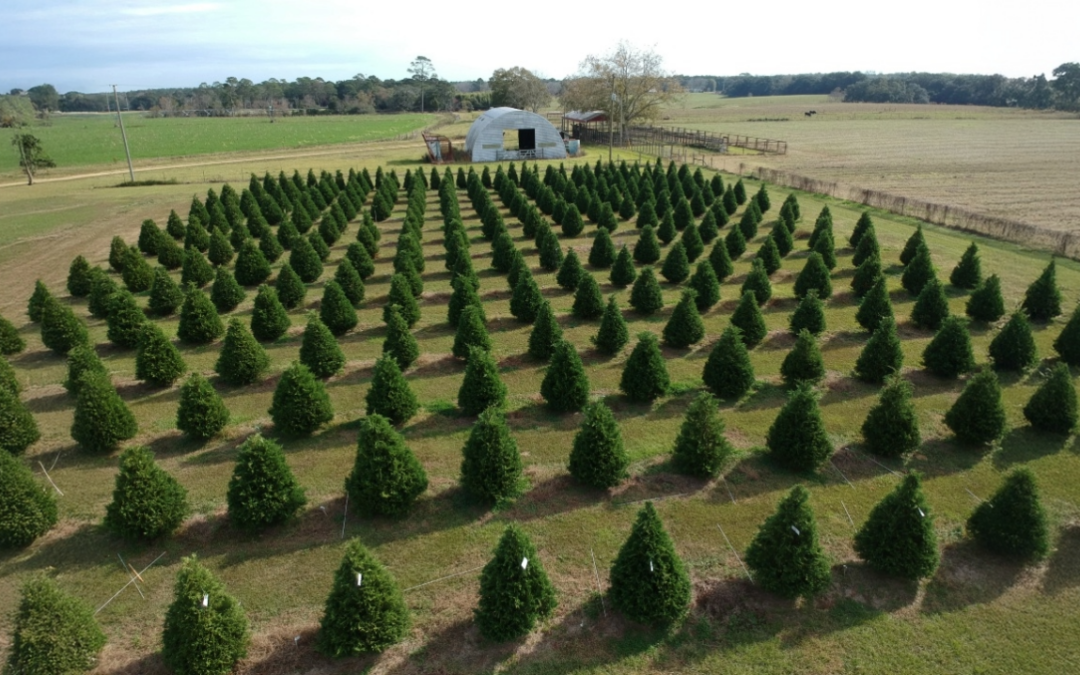

The holiday season means a time for not only giving gifts but giving...
The College of Agriculture Scholarship Committee selected Alexandra “Lexie” Hare as the summer 2025 Dean’s Award recipient, recognizing her for academic excellence and service to the College of Agriculture. Hare graduated Saturday with a Bachelor of Science in...
Researchers at Auburn University recently developed new methods for safely using poultry processing wastewater for food-grade hydroponic crop production. By eliminating pathogens, like salmonella, the research team was able to use wastewater from a poultry processing...
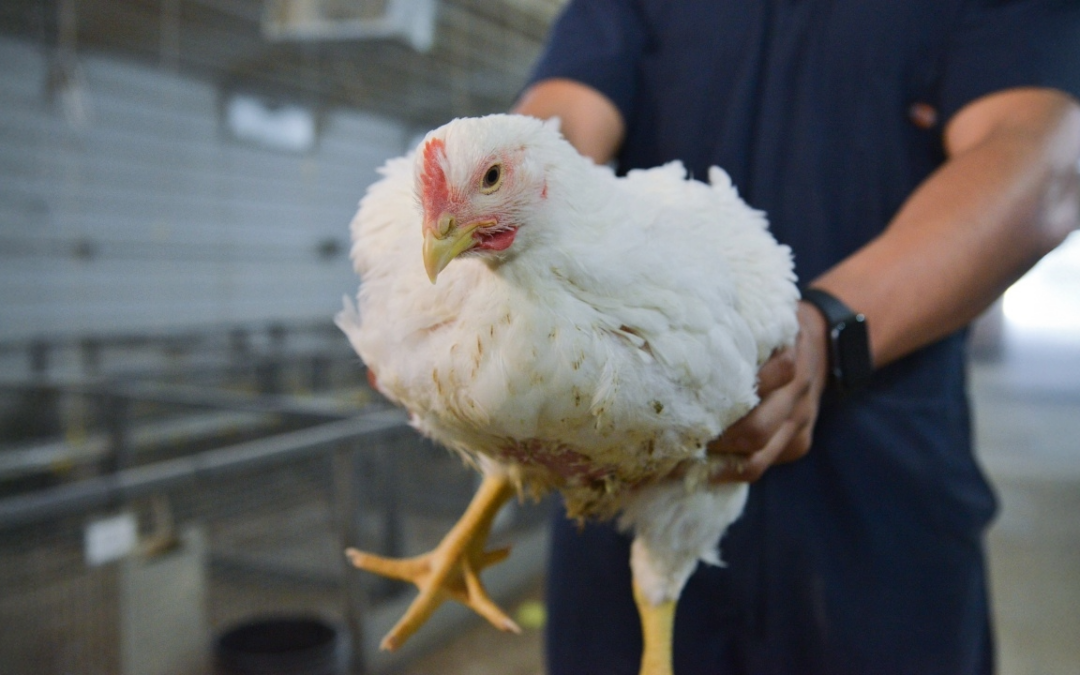
Researchers at Auburn University recently developed new methods for safely using poultry processing wastewater for food-grade hydroponic crop production. By eliminating...
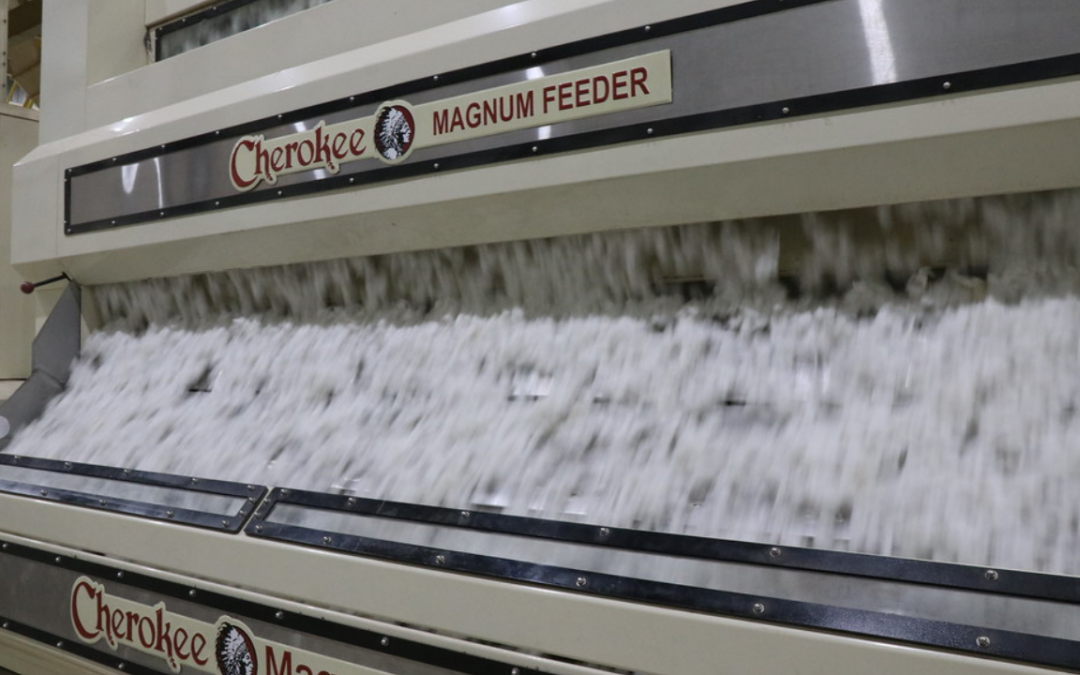
A fierce battle is being waged between cotton and polyester, with polyester edging ahead as the most widely used fiber in the world, for now. In fact, synthetic materials account for more than half of today’s overall market share.
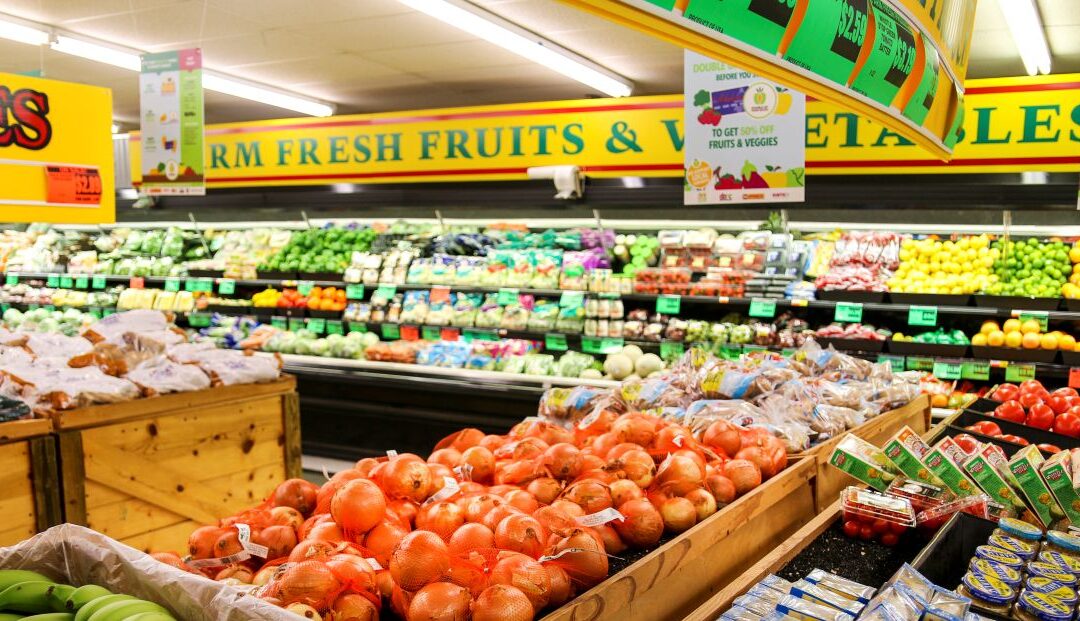
Double Up Food Bucks Alabama is enhancing communities by making fresh local produce more affordable and accessible at select grocery stores and farmers markets. The...
By Paul Hollis Auburn is joining with three other Southeastern universities in a $5 million research effort to help ensure water for agricultural production while maintaining healthy rivers and springs. The project—funded by a five-year grant from the United States...
By Steve Li Cover crops can provide many benefits to peanut and cotton rotations in terms of suppressing weeds, conserving soil moisture for planting, increasing soil organic matter, reducing soil erosion and more. In fields where residual herbicides are used during...
By Paul Hollis Have you ever bitten into your favorite fast-food chicken sandwich only to find the meat is tough and chewy? This could become a rarity, thanks to a process an Auburn University researcher is developing to rapidly detect poor meat quality in chicken...
By Ravali Bheemanathini Alabama has enough miles of rivers and streams to circle the earth five times, and for the past 25 years, a devoted group of citizen volunteers has worked to protect these bountiful water resources. The group is Alabama Water Watch, and as it...
AUBURN, Ala.—Cow-calf producers across the state will gain valuable insight on how to rebuild their herds successfully during the Auburn University Department of Animal Sciences’ 2017 Beef Cattle Conference Saturday, Aug. 12, 8 a.m.-3 p.m., at the Ham Wilson Livestock...
By Paul Hollis While fruits and vegetables are undeniably good for the body, they’re also a major boost for Alabama’s economy, Auburn University and Alabama Agricultural Experiment Station economists found in a recently completed analysis of the industry. “Specialty...
By Austin Hagan Seed accounts for up to 20 percent of the total variable production cost for peanut producers, especially for larger-seeded cultivars such as Georgia-06. One option for saving money is to reduce seeding rates, but can this be done without negatively...
With the summer months approaching, the National Poultry Technology Center at Auburn University hosted about 80 poultry managers and technicians April 19 for a hands-on training seminar on hot-weather housing, ventilation and equipment issues. The event was the first...
The Market at Ag Heritage Park kicks off its 2017 season Thursday, May 11, from 3 to 6 p.m. on the Auburn University campus and will be open every Thursday, same time and place, through Aug. 24. The weekly farmers market is held on the grounds of Ag Heritage Park’s...
Beth Guertal, a professor in Auburn University’s Department of Crop, Soil and Environmental Sciences, has been voted president-elect of the Crop Science Society of America, or CSSA, and will advance to the role of president at the organization’s 2018 meetings in...
By JAMIE CREAMER April 1 marked the launch of a free, online crop management tool designed to help cotton producers in Alabama and the Southeast get the upper hand on thrips, the region’s most consistent pests of seedling cotton. Developed at North Carolina State...
Construction will begin this summer on three new College of Agriculture facilities that the Auburn University Board of Trustees signed off on at its April 7 meeting in Auburn. The project list includes an 8,150-square-foot administration building at the Charles C....
By Eddie McGriff Henderson Farms in Madison, Alabama, topped the 2016 National Corn Growers Association state contest for Alabama in the irrigated (305.7 bushels per acre) and the non-irrigated categories (232.7 bushels per acre). Mike Henderson along with son, Chad,...
Three Auburn University researchers will be among more than 60 academic and governmental researchers to participate in the SEC Academic Conference to be held this month. Eve Brantley, Extension specialist and associate professor, Department of Crop, Soil and...
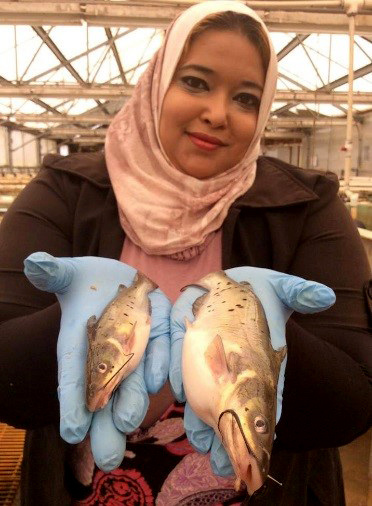
The award recognizes Youssef’s abstract, “Effect of combined transgenic channel catfish Ictalurus punctatus growth hormone (GH) and their siblings on growth rate of channel catfish in earthen ponds,” which summarizes her research on the growth performance of male and female transgenic channel catfish growth hormone (GH) cDNA and their full siblings in earthen ponds at different ages.
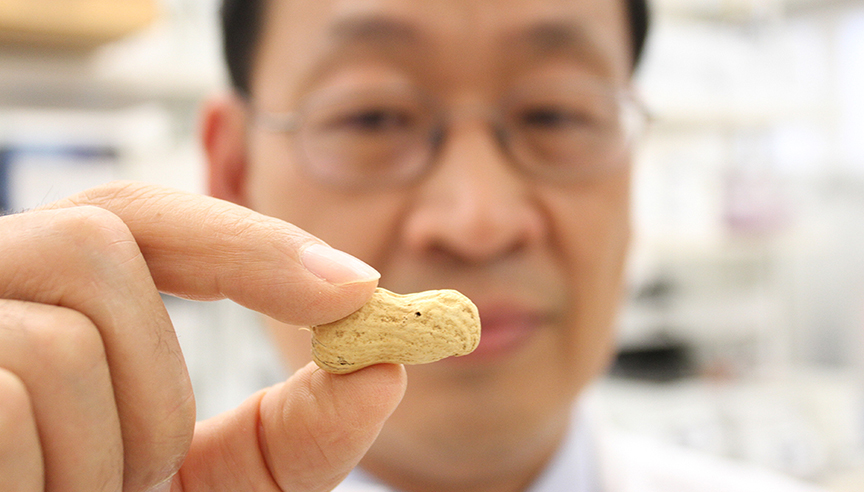
Auburn University might be relatively new to the peanut breeding business, but its just-released runner peanut variety is already winning accolades for its high yields, resistance to disease and healthy traits. The new release is the product of a peanut breeding program operated jointly by the Department of Crop, Soil and Environmental Sciences and USDA’s National Peanut Research Lab.
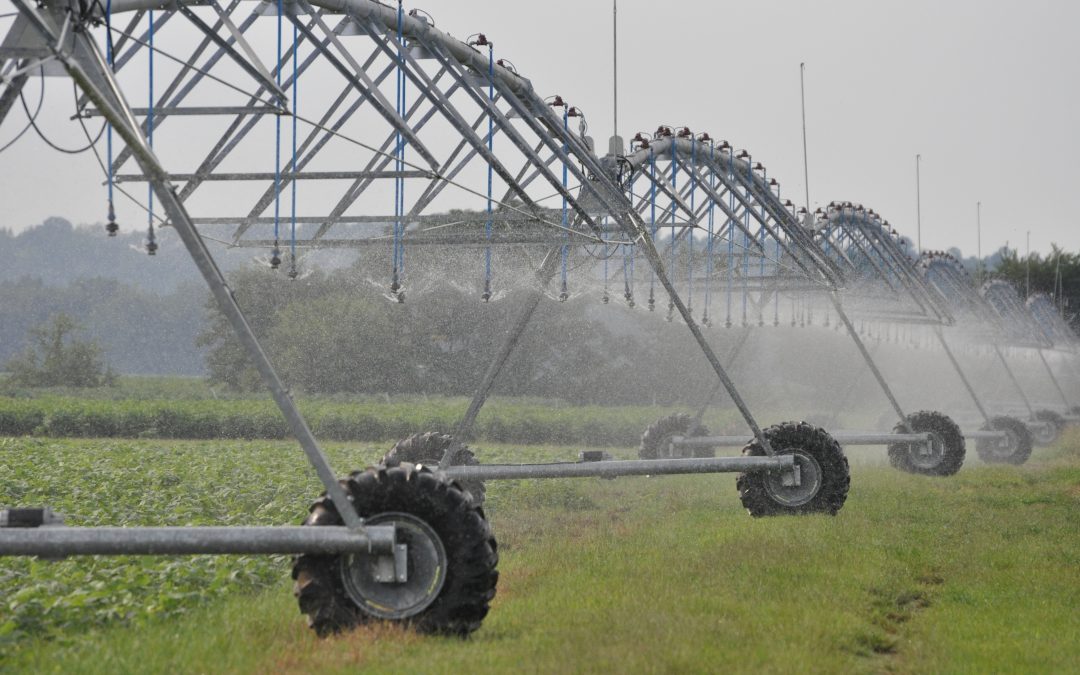
In Alabama, farmers often say that, during the summer, they’re always 10 days away from being in a drought. So this past year, when some parts of the state went for more than 70 consecutive days without measurable rainfall, many—including farmers, municipalities and others who rely on a plentiful water supply—were unprepared.
Austin Hagan, professor in the Department of Entomology and Plant Pathology and Alabama Extension plant pathologist, will discuss the results of a two-year study on developing integrated strategies for managing target spot in cotton in a webinar scheduled for Monday,...
The Alabama Precision Agriculture Extension Program will be presenting several precision agriculture workshops in 2017. The following are topics and other information about the programs. Use of Soil Sensors for Irrigation Scheduling. This workshop will discuss the...

Auburn University is joining forces with the world’s leading sports turf consultancy to initiate research and development programs throughout the U.S. sports surface market. The agreement with the STRI Group will focus primarily on expanding the U.S. soccer industry, as well as conducting surfaces research in other sports including golf, football, baseball and equestrian.
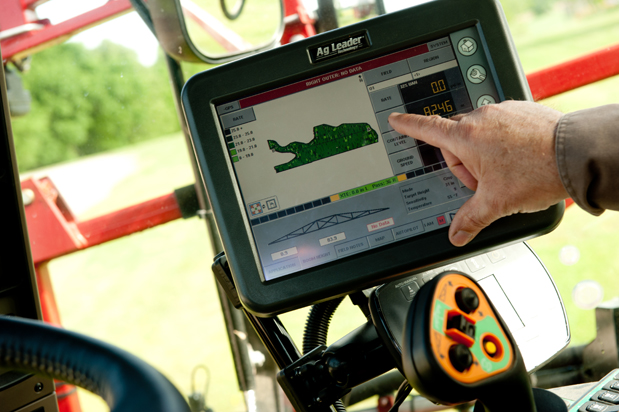
How big is data in U.S. agriculture? Consider that one acre of corn can generate seven gigabytes of data. With approximately 93 million acres of the crop currently in production, that’s 145 million DVDs filled with information—from just one crop.
By Paul Hollis Auburn is joining with three other Southeastern universities in a $5 million research effort to help ensure water for agricultural production while maintaining healthy rivers and springs. The project—funded by a five-year grant from the United States...
By Steve Li Cover crops can provide many benefits to peanut and cotton rotations in terms of suppressing weeds, conserving soil moisture for planting, increasing soil organic matter, reducing soil erosion and more. In fields where residual herbicides are used during...
By Paul Hollis Have you ever bitten into your favorite fast-food chicken sandwich only to find the meat is tough and chewy? This could become a rarity, thanks to a process an Auburn University researcher is developing to rapidly detect poor meat quality in chicken...
By Ravali Bheemanathini Alabama has enough miles of rivers and streams to circle the earth five times, and for the past 25 years, a devoted group of citizen volunteers has worked to protect these bountiful water resources. The group is Alabama Water Watch, and as it...
AUBURN, Ala.—Cow-calf producers across the state will gain valuable insight on how to rebuild their herds successfully during the Auburn University Department of Animal Sciences’ 2017 Beef Cattle Conference Saturday, Aug. 12, 8 a.m.-3 p.m., at the Ham Wilson Livestock...
By Paul Hollis While fruits and vegetables are undeniably good for the body, they’re also a major boost for Alabama’s economy, Auburn University and Alabama Agricultural Experiment Station economists found in a recently completed analysis of the industry. “Specialty...
By Austin Hagan Seed accounts for up to 20 percent of the total variable production cost for peanut producers, especially for larger-seeded cultivars such as Georgia-06. One option for saving money is to reduce seeding rates, but can this be done without negatively...
With the summer months approaching, the National Poultry Technology Center at Auburn University hosted about 80 poultry managers and technicians April 19 for a hands-on training seminar on hot-weather housing, ventilation and equipment issues. The event was the first...
The Market at Ag Heritage Park kicks off its 2017 season Thursday, May 11, from 3 to 6 p.m. on the Auburn University campus and will be open every Thursday, same time and place, through Aug. 24. The weekly farmers market is held on the grounds of Ag Heritage Park’s...
Beth Guertal, a professor in Auburn University’s Department of Crop, Soil and Environmental Sciences, has been voted president-elect of the Crop Science Society of America, or CSSA, and will advance to the role of president at the organization’s 2018 meetings in...
By JAMIE CREAMER April 1 marked the launch of a free, online crop management tool designed to help cotton producers in Alabama and the Southeast get the upper hand on thrips, the region’s most consistent pests of seedling cotton. Developed at North Carolina State...
Construction will begin this summer on three new College of Agriculture facilities that the Auburn University Board of Trustees signed off on at its April 7 meeting in Auburn. The project list includes an 8,150-square-foot administration building at the Charles C....
By Eddie McGriff Henderson Farms in Madison, Alabama, topped the 2016 National Corn Growers Association state contest for Alabama in the irrigated (305.7 bushels per acre) and the non-irrigated categories (232.7 bushels per acre). Mike Henderson along with son, Chad,...
Three Auburn University researchers will be among more than 60 academic and governmental researchers to participate in the SEC Academic Conference to be held this month. Eve Brantley, Extension specialist and associate professor, Department of Crop, Soil and...

The award recognizes Youssef’s abstract, “Effect of combined transgenic channel catfish Ictalurus punctatus growth hormone (GH) and their siblings on growth rate of channel catfish in earthen ponds,” which summarizes her research on the growth performance of male and female transgenic channel catfish growth hormone (GH) cDNA and their full siblings in earthen ponds at different ages.

Auburn University might be relatively new to the peanut breeding business, but its just-released runner peanut variety is already winning accolades for its high yields, resistance to disease and healthy traits. The new release is the product of a peanut breeding program operated jointly by the Department of Crop, Soil and Environmental Sciences and USDA’s National Peanut Research Lab.

In Alabama, farmers often say that, during the summer, they’re always 10 days away from being in a drought. So this past year, when some parts of the state went for more than 70 consecutive days without measurable rainfall, many—including farmers, municipalities and others who rely on a plentiful water supply—were unprepared.
Austin Hagan, professor in the Department of Entomology and Plant Pathology and Alabama Extension plant pathologist, will discuss the results of a two-year study on developing integrated strategies for managing target spot in cotton in a webinar scheduled for Monday,...
The Alabama Precision Agriculture Extension Program will be presenting several precision agriculture workshops in 2017. The following are topics and other information about the programs. Use of Soil Sensors for Irrigation Scheduling. This workshop will discuss the...

Auburn University is joining forces with the world’s leading sports turf consultancy to initiate research and development programs throughout the U.S. sports surface market. The agreement with the STRI Group will focus primarily on expanding the U.S. soccer industry, as well as conducting surfaces research in other sports including golf, football, baseball and equestrian.

How big is data in U.S. agriculture? Consider that one acre of corn can generate seven gigabytes of data. With approximately 93 million acres of the crop currently in production, that’s 145 million DVDs filled with information—from just one crop.